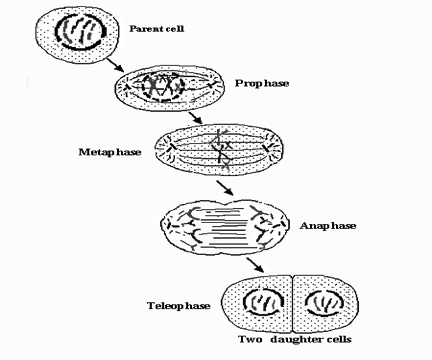The division of a cell to form two daughter cells, each having a nucleus containing the same number and kind of chromosomes as the mother cell. Each chromosome divides lengthwise into two chromatids that separate and form into the chromosomes of the resulting daughter cells. The process consists of four phases: prophase, metaphase, anaphase and telophase, which merge into each other (see figure below). The chief function of mitotic division is to ensure that cells of an individual organism are genetically identical to each other and to the original fertilized egg.
